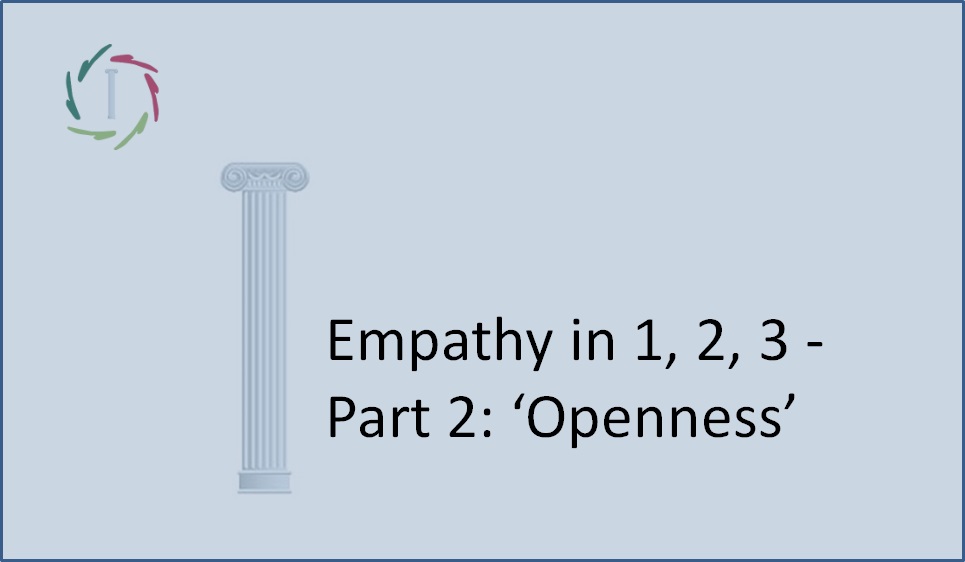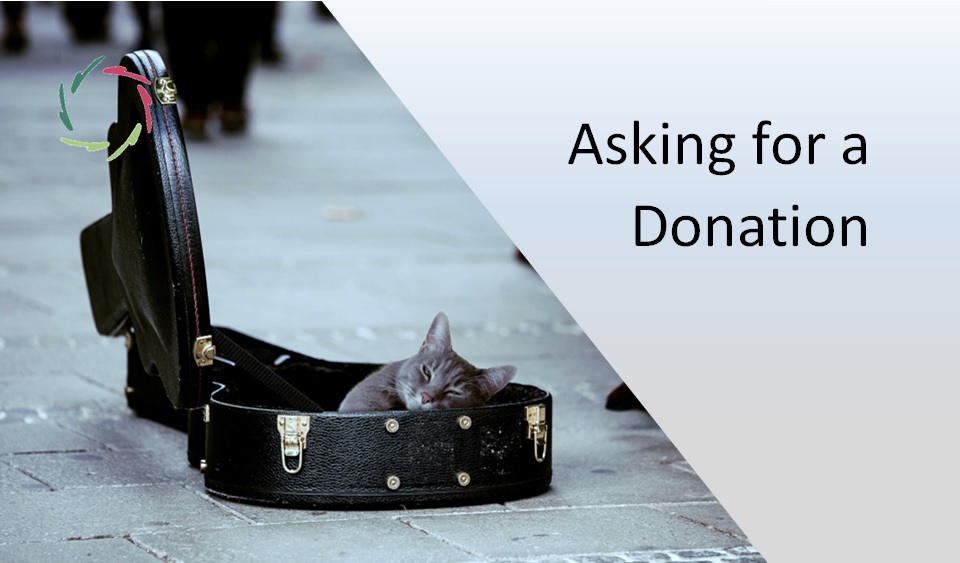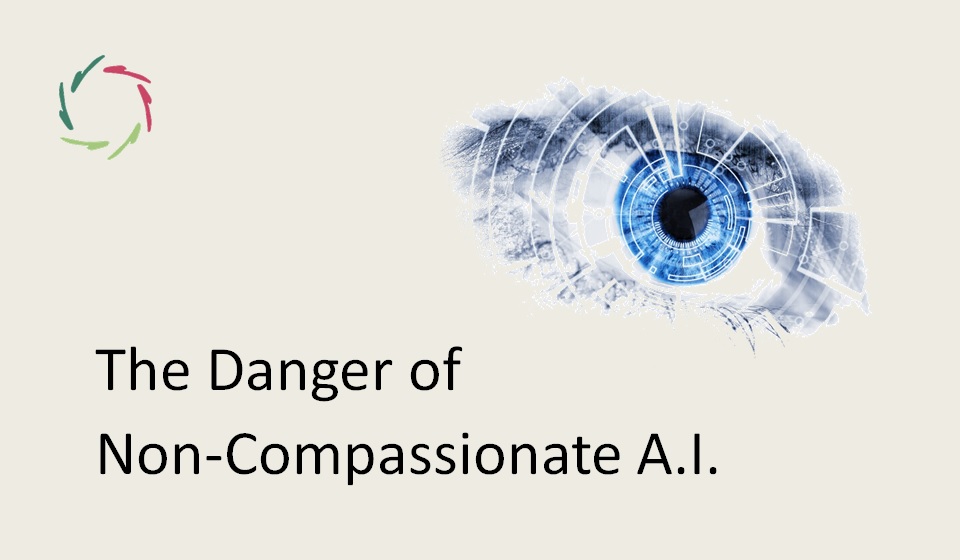23. Empathy in 1, 2, 3 – Part 2: ‘Openness’

Most important in empathy: Do not stand in the way of it.
Openness to meaningful patterns
By this I mean YOUR openness. It may feel like intuition or a deep sensation.
You may have already heard of ‘non-conceptual communication’: in addition to everything a patient tells you at a verbal conceptual level, he/she always sends a torrent of signals that are simply not to be comprehended conceptually. A part of this is non-verbal: looks, gestures, etc. Another part lies in and between the words: intonations, phrases, specific word use…
You can compare this to ‘seeing’: At each moment, many thousands of external stimuli end up on the retina. They are being processed there and in the brain. Eventually, a picture is formed through an interplay of relevant brain centers. This picture is understandable to you. This thing here is a computer. That thing there is a word on paper…
In the meantime, you miss plenty of details.
Maybe that’s a good thing because otherwise you would be completely overwhelmed.
If, however, some of these not-directly-visible details form a meaningful pattern, it is sometimes important that you see this. If a patient, through non-conceptual communication, repeatedly emphasizes a particular aspect, then this might be very important.
Empathy largely lies in the possibility to notice such meaningful patterns. This requires openness.
Not standing in the way
Being totally present and at the same time not at all. Definitely not simple. Such an attitude cannot be forced.
In addition, in the case of true empathy, one does not get lost in the other. However, it’s also not so that one seeks oneself at the expense of the other. One is indeed optimally ‘present’. One is not avoiding the own emotions… Perhaps you may notice that this is different from what you were taught during your medical training. I vividly remember an associate professor who focused on the opposite.
At the same time, people expect doctors to be ’empathic’. Rightfully so. Empathy is not the same as being able to diagnose emotions in a patient by ticking the relevant emotions in a list of 20 (or 100). It’s about much more than that.
Clair-sentience, no clairvoyance
It may seem magical to see someone respond to someone else in a way that is beyond the mere conscious concerns of the latter. This is no clairvoyance. We remain within the limits of the known universe.
But this is precisely why it seems to be even more ‘magical’. For those who are interested in astronomy: It’s like a black hole in space. Something is there but we do not see it. We see the impact, but without a black hole, we cannot place this impact.
In medicine, much of this ends up in concepts such as ‘idiopathic’ or ‘functional’. Words that give the impression that we understand it better. But if the words are standing in the way, we eventually understand even less.
Clear-sentience is seeing patterns that are present in the visible
although it requires more effort than it would normally do.
You can somewhat compare this with colored cards showing numerals on a colored background (Ishihara Test). Imagine you would suddenly be color blind, but gradually you are able again to distinguish colors while looking at such a card. An ‘invisible’ pattern (numeral) becomes visible.
This has of course nothing to do with clairvoyance, even though a color-blind person might think so.
One can ‘sense clearly’ without being able to express exactly what one feels. Intuition.
Besides, this has as little to do with ‘femininity’ as the art of cooking. Men can do it just as well. Chefs des cuisines are even mostly men. This is rather a matter of culture than of nature.
Like cooking, clear-sentience can be learned. But just like any art, it is not to be learned just like that. It’s not a matter of mere techniques, but it requires a lot of practice under proper guidance. A good piece of advice is to not stand in the way. You can NOW find out for yourself if this particular advice comes across as important.
If not, might it be possible that some idea about yourself is standing in the way?


